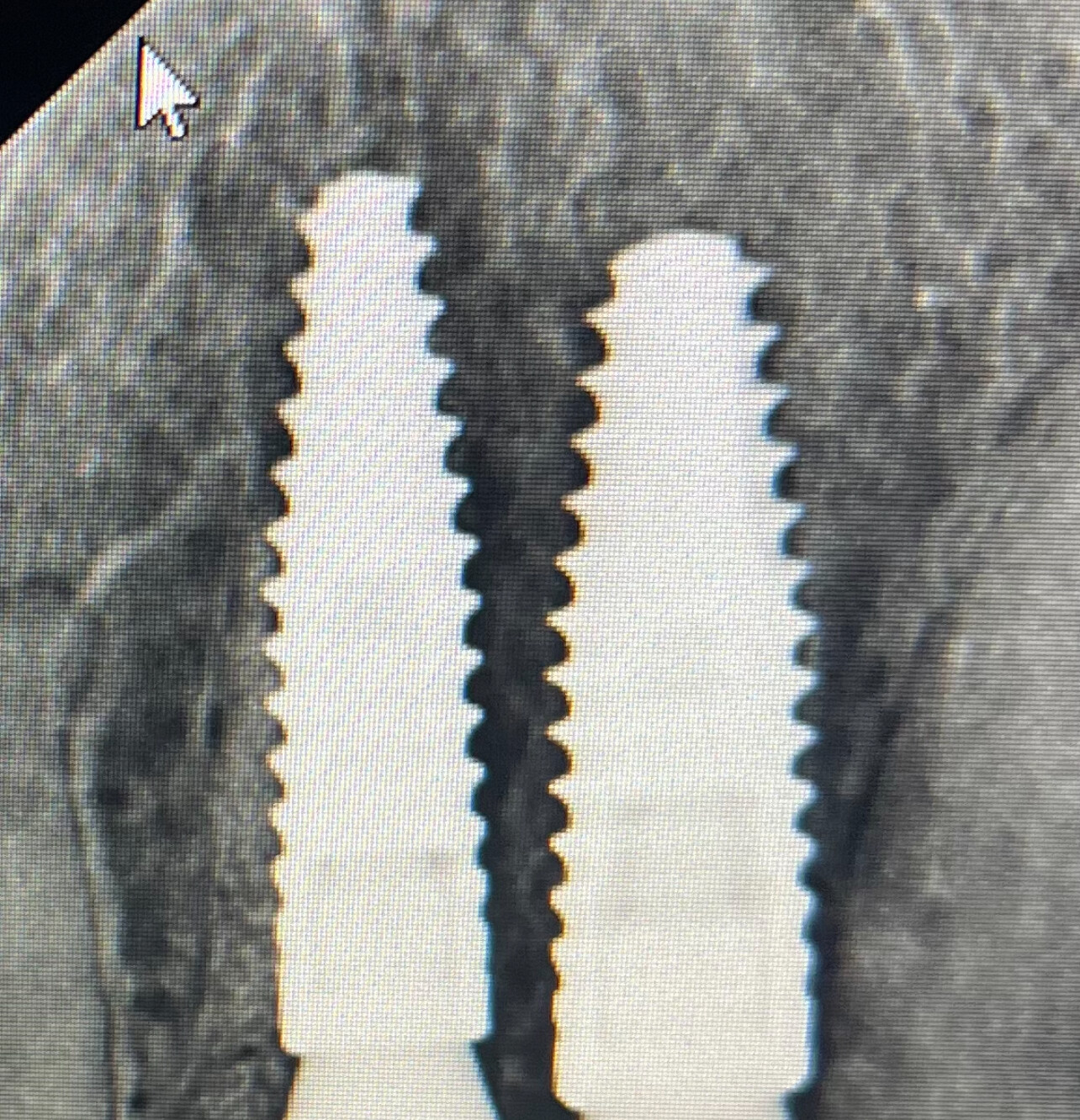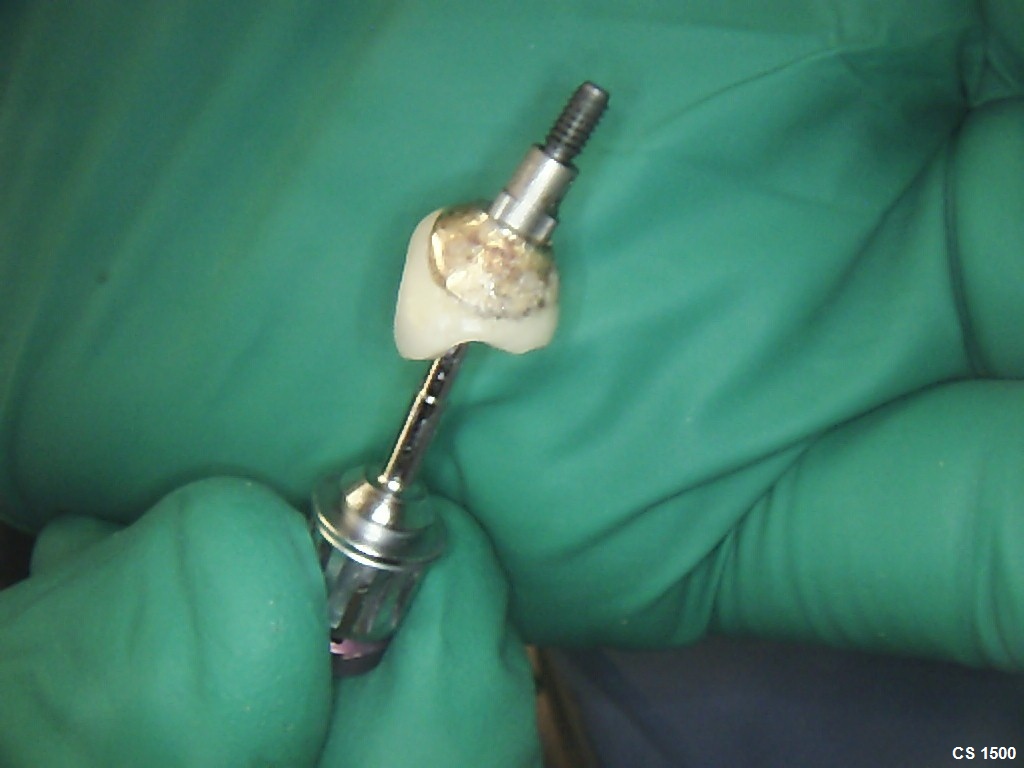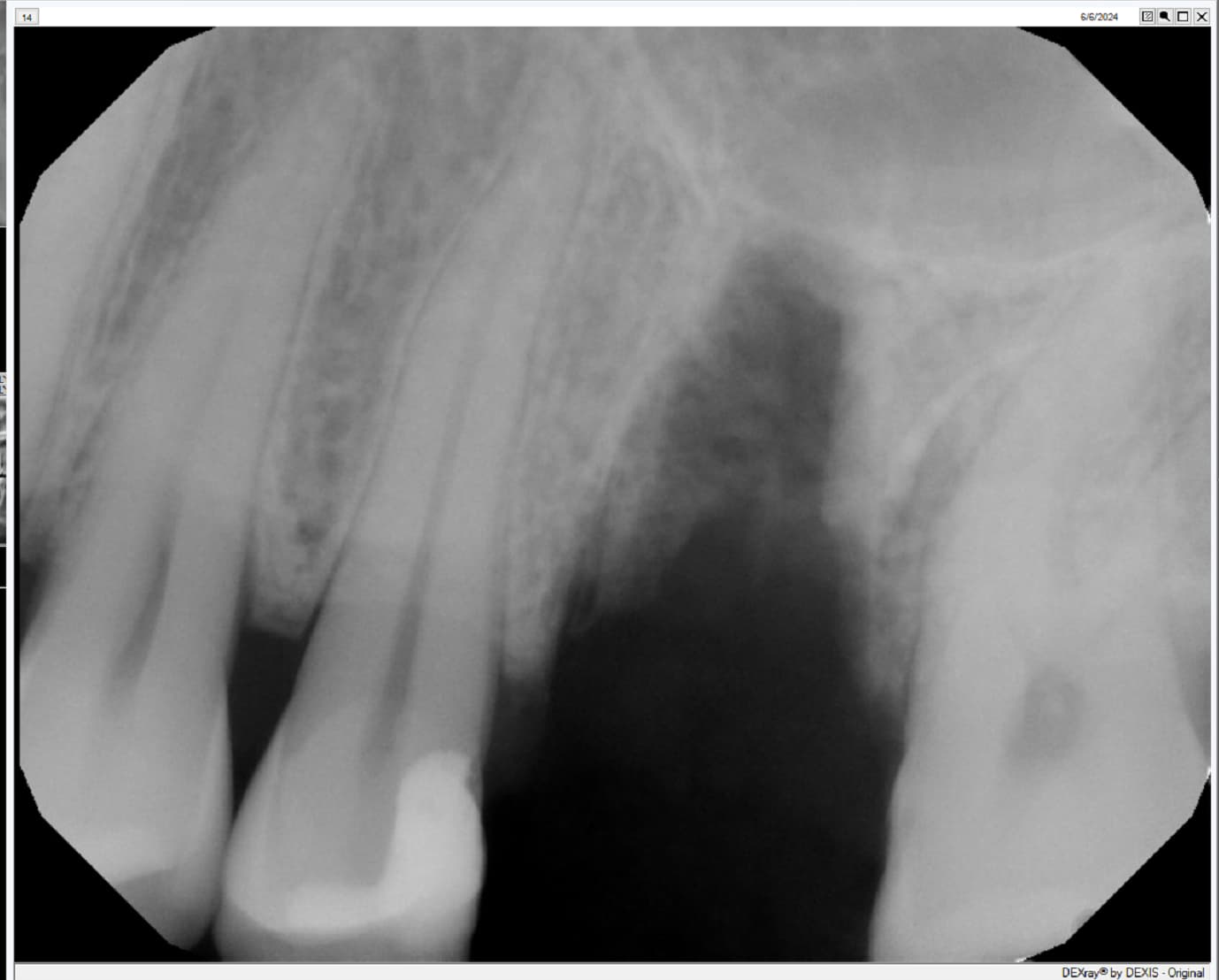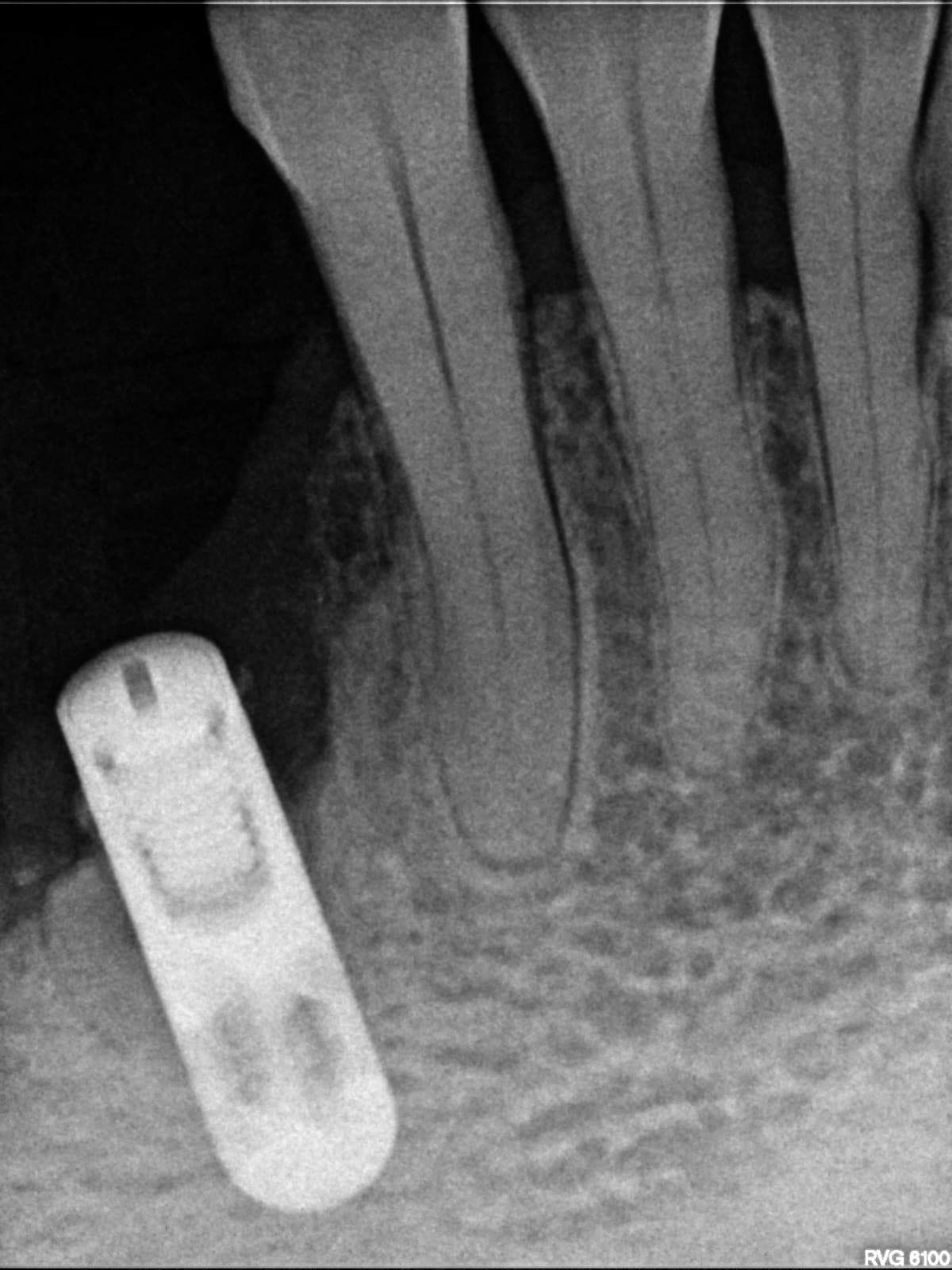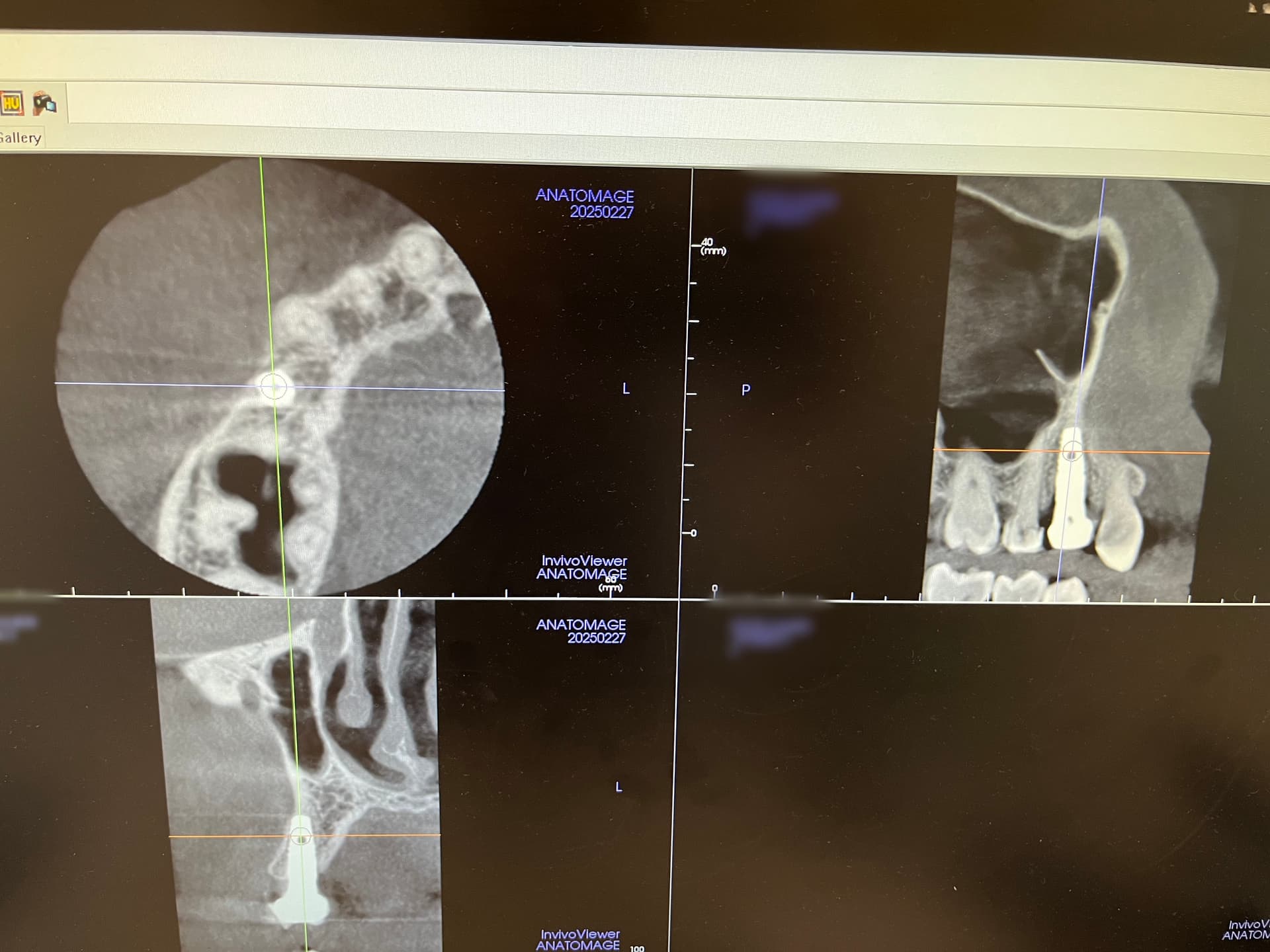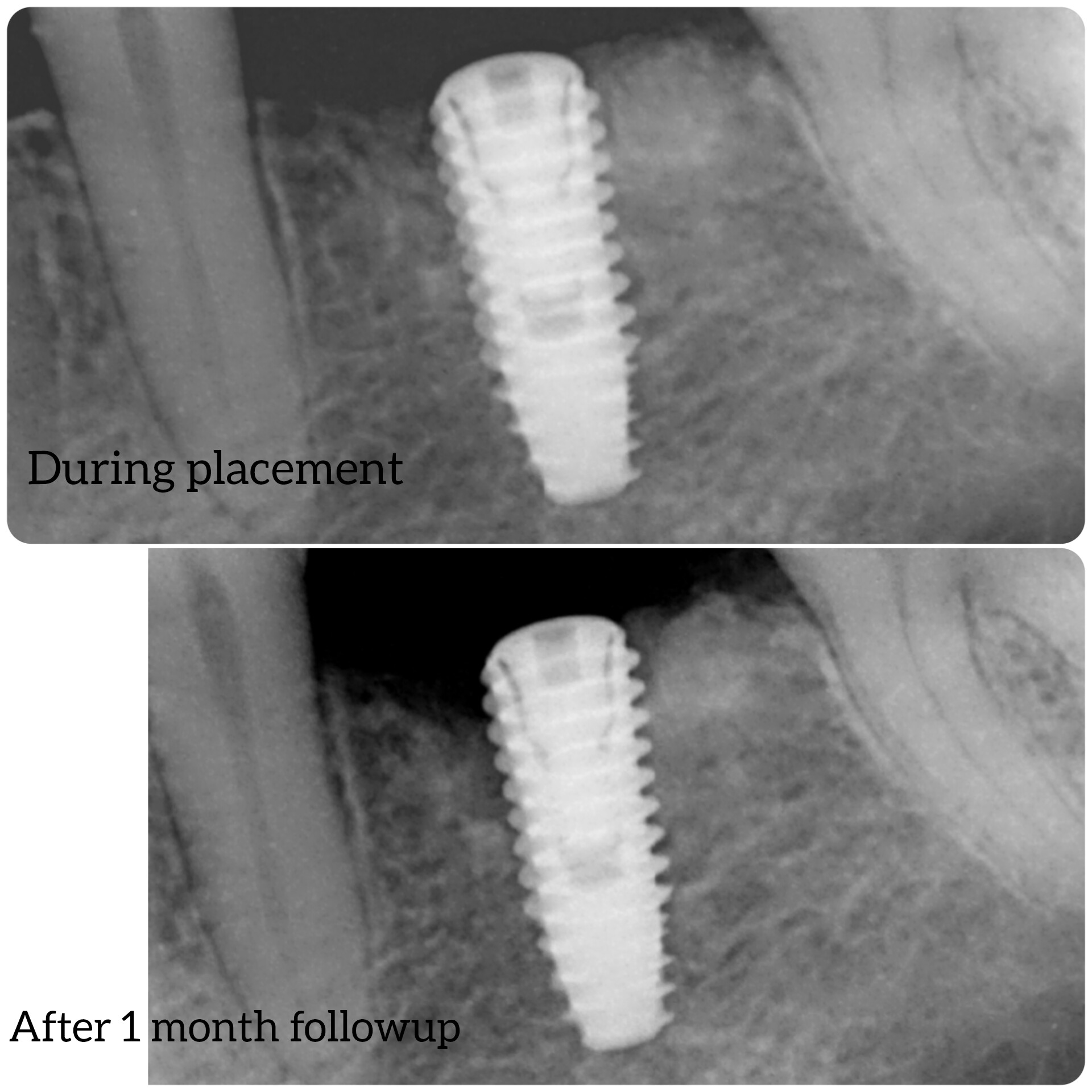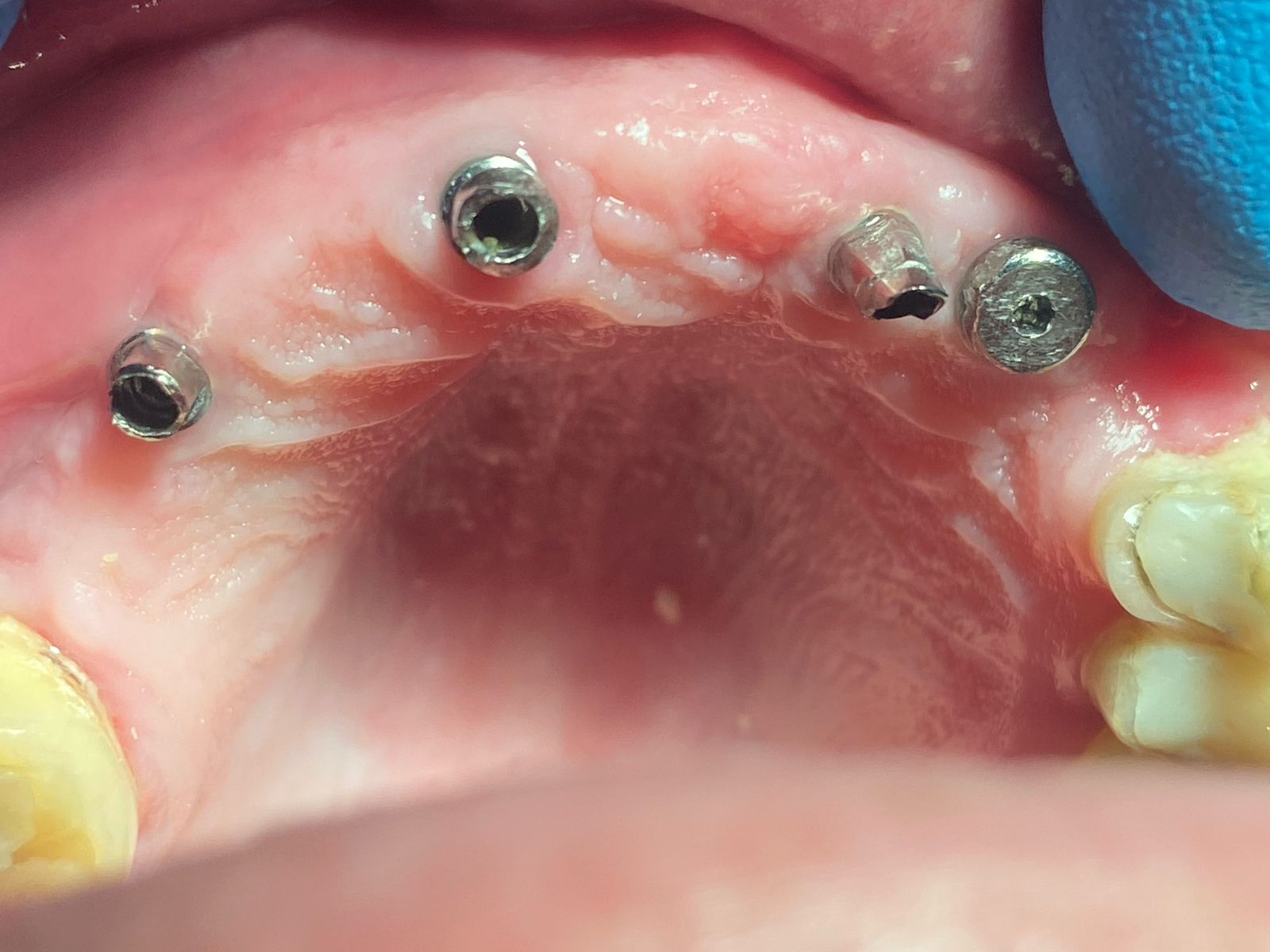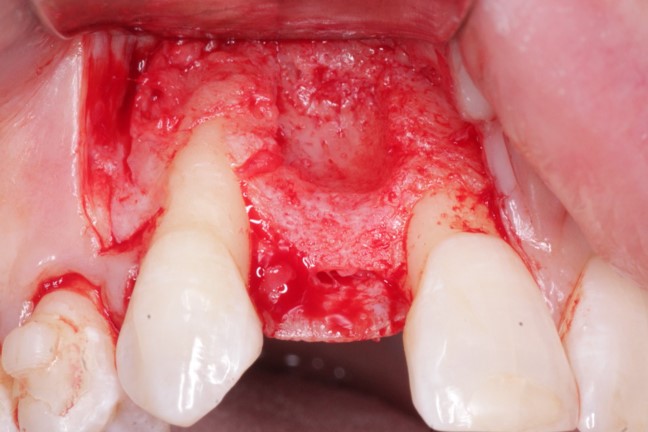Implants in Patients Going Thru Menopause?
Dr. E. asks:
I have a number of female patients who are going thru menopause. I would like to place dental implants in these patients but am concerned about some of the hormonal changes they may experience. Decrease in bone density is one of the common findings and I am concerned about dental implant longevity and complications. Am I being too cautious? Any other factors that I should consider?
21 Comments on Implants in Patients Going Thru Menopause?
New comments are currently closed for this post.
Alejandro Berg
10/16/2007
Dont concern too much with that, allways remember that since the begining implants were ment for older people, and if you see the studies there is no problem with women. Just be carefull with the meds they usually are taking now (biophosphonates)
best luck
jeff
10/16/2007
Dr.Berg,
Shouldn't you mention that the patient should consult with primary care b4 moving ahead with implants? Not all female patients going through this process are the same. Implants are meant for older people? What % of population now are being treated for implants- I'd say a higher rate of patients in their 30's and early 40's
Dr. Tom
10/16/2007
So Dr. Berg you recommend sending a patient with menopause for a med clearance? What is the general feeling about med clearance in these cases?
D. Theule, DDS
10/17/2007
I am a periodontist. I require a med consult for all potential implant patients for their protection and for liability reduction. Most patients, regardless of age, are poor historians or don't understand their maladies well, especially those with chronic maladies. The implant process is a significant committment, when I recommned a med consult and the patient is not interested in doing so, that tells me something about the liklihood that they would comply with other recommendations or post operative instructions they will need to heed during the implant process.
Food for thought... good luck.
Dr. Mehdi Jafari
10/18/2007
The endocrine changes of menopause result in physical symptoms for many women: Many of them experience hot flushes, and other symptoms include aches and pains, headaches, lethargy, weight changes, and sometimes memory loss. Women also identify changes in sexual function and mood. Anxiety exacerbates hot flushes, fatigue, and sleeplessness. Education has been shown to reduce anxiety, and preparing women for these aspects of menopause. With menopause comes aging, and more women rate this as a fear associated with menopause than any other problem. Other perceived fears include weight gain and loss of sexuality and femininity. Hormone replacement therapy is perceived to be beneficial for hot flushes, fracture prevention, and metabolic changes, whereas the risks of hormone replacement therapy are related to breast cancer, blood clots, and probably, increased ischemic heart disease. Type I osteoporosis occurs in women beginning after menopause and is associated with accelerated loss of trabecular bone. The impact of type I osteoporosis on the maxilla and mandible is likely to directly affect the capacity of these bones to integrate dental implants. The data indicate that there is an effect of postmenopausal estrogen status on compromised implant healing in the maxilla but not in the mandible. The mandible consists mainly of cortical bone, and therefore would be expected to show less osteopenic changes in postmenopausal women. A significant difference in rate of implant failure has been shown in the maxilla of postmenopausal women who had not received estrogen supplementation and it seems that there is a positive trend toward increased implant failure in the maxilla of unsupplemented postmenopausal women. So far, no clear association between advancing age and increased implant failure has been shown. Therefore, high risk, unsupplemented women may best be served preoperatively by appropriate medical work-up and an evaluation for osteoporosis that would include direct measure of bone mineral density. Consideration for estrogen replacement would be based on the results, and it could maximize the likelihood of successful osseointegration.
Vishtasb Broumand, DMD, M
10/21/2007
Dr. Jafari, nicely done. That was a brilliant review and much needed synopsis.
Additionally, once must keep in mind that many post or peri-menopausal patients may also have taken medications in the past that may even contribute to development of Type I osteoporosis. Medications such as Depo-Provera, TZD's, SSRI's, Proton pump inhibitors, Lithium and many anticoagulants all interfere with Vit. D and Calcium metabolism as well. Interference with Vit. D levels may also increase implant failure rates due to development of osteopenia.
Perioplasticsurgeon
10/21/2007
Dr E,
You can never be to cautious when it comes to treating a patient.
This is a great review by Moy:
Bottom line: Women with Postmenopausal estrogen therapy had a 2.5 increase risk on implant failure.
So this should be explained to your patients as part of the informed consent process.
Int J Oral Maxillofac Implants. 2005 Jul-Aug;20(4):569-77.Links
Dental implant failure rates and associated risk factors.Moy PK, Medina D, Shetty V, Aghaloo TL.
Oral and Maxillofacial Surgery, University of California at Los Angeles, School of Dentistry, Los Angeles, California, USA.
PURPOSE: To guide treatment planning by analyzing the rates of dental implant failure to determine associated risk factors. MATERIALS AND METHODS: All consecutively treated patients from January 1982 until January 2003 were included in a retrospective cohort study, as defined in the hierarchy of evidence for dental implant literature. Data regarding gender, age, implant location, bone quality, bone volume, and medical history were recorded. Correlations between these data and implant survival were calculated to establish relative risk (RR) ratios. RESULTS: Increasing age was strongly associated with the risk of implant failure. Compared to patients younger than 40 years, patients in the 60-to-79 age group had a significantly higher risk of implant failure (RR = 2.24; P
Perioplasticsurgeon
10/21/2007
Not sure why the abstract got cut off, here it is
PURPOSE: To guide treatment planning by analyzing the rates of dental implant failure to determine associated risk factors. MATERIALS AND METHODS: All consecutively treated patients from January 1982 until January 2003 were included in a retrospective cohort study, as defined in the hierarchy of evidence for dental implant literature. Data regarding gender, age, implant location, bone quality, bone volume, and medical history were recorded. Correlations between these data and implant survival were calculated to establish relative risk (RR) ratios. RESULTS: Increasing age was strongly associated with the risk of implant failure. Compared to patients younger than 40 years, patients in the 60-to-79 age group had a significantly higher risk of implant failure (RR = 2.24; P
Dr. Mehdi Jafari
10/22/2007
Mr. periodontist and plastic surgeon, sir, I believe that you have forgotten to quote the discussion part of the article that you are referring to.In that part the authors argue that ("Patients who were over age 60, smoked, had a history of diabetes or head and neck radiation, or were postmenopausal and on hormone replacement therapy experienced significantly increased implant failure compared with healthy patients").It sounds that the the real issue here is the systemic condition of the patients which were accompanied the aging, and not the age per se.As far as we know, any increase in implant failure rate pertaining to the older age only, has not been clinically proven.Thank you.
Perioplasticsurgeon
10/22/2007
MR Mehdi Jafari.
I didnt say not to treat the patient, nor did I say every patient who is postmenopausal will have 2.5 times the implant failure.
I pointed out a good resource article for DR E to review and I stated what the bottom line of the article was in regards to postmenopause that there is a 2.5x the RISK of implant failure. Thats not to say that you will have a failure, but there is a RISK of failure in this patient population.
I think you would agree that there is reason for caution and that this should be explained to your patient during informed consent prior to doing the surgery.
Or maybe you dont have informed consent in your country.
George Koukos
10/23/2007
dear Perioplasticsurgeon,it would be nice and very professional if you werent so sarcastic and ironic towards a colleague out here.I am reffering to your answer to DR(and not Mr)Jafari.Furthermore you should understand that dentistry is practiced in other parts of the world apart the US and pretty succesfully too.Finally,it would be very nice too if you wrote in this site using your full and true name without hiding behind a nickname.thank you
Perioplasticsurgeon
10/23/2007
First off George he called me Mr first, I think you need to reread the tone of his again before you slap me around. Using my name is not a requirement of this site, you can help others on this site without your name, which I thought that I was doing by added my 2 cents to Dr E problem. Thanks for your input.
dott,med. dott.med det.
10/23/2007
in my experience of hundreds of every kind of implants i never observed a significant difference between male or female osseous substance and also regarding the age and also regarding difference of age in a female pre and post menopausa.
on the same instance (or on the table) i put the almost inexesistence of osseous difference regarding the age of any our patients.
all that obwiously not against osseous anatomopathology, but against the convinction that our approach must be different from age to age or from sex to sex.
thank you and pardon for my english
Ken Clifford, DDS
10/23/2007
Dr Perioplasticsurgeon - I hope you are not the "perioplasticsurgeon" (whatever that means - a new specialty, perhaps?) to whom I ever have to refer. Your attitude towards those trying to make the world better is amazing. If this attitude translates to your patients, good luck in your future endeavors. At least I called you DOCTOR!
Perioplasticsurgeon
10/24/2007
Thanks Dr. Clifford I appreciate your comments. However, if your read my orginal comments to Dr. E you would see I was trying to help.
Mr. Jim
10/30/2007
The most relievent comment has been "implants were designed for older patients.....". (!)Ok, common sence tells us what "their bone will more than likely be and as for the patient in question...well take a chance and put her on calcium supplement since how much worse can her bone be?
Dr. Crystal Baxter
11/7/2007
It is interesting that all of the comments on this subject have been posted by males, unless Perioplastic whatever is a female which I think unlikely. I have studied osteoporosis in jaws since before osseointegration even existed, and I could see a loss of bone density even on routine radiographs in many women at or before menopause. My surgeons and I have used osseointegrated implants with great success on these women. However, we were very cautious with them. In the patients I restored, implants were placed only after post extraction healing occured (3-6 months) the implants were buried for 3 to 6 months. Great care was taken with occlusion and loading. I still follow that protocol even in this day of instant gratification and teeth in a nanoscond.
Because of this conservative protocol (I believe), my success rate has been very high, even in the posterior maxilla. Most of my patients are totally edentulous or their dentition is so poor they must become so prior to implant treatment. 80% of my patients are post menopausal females.
dr T
12/3/2007
Nice and good comment from dr Crystal Baxter. Even in females with osteoporosis there is boneremodeling only the breakdown is more then the building. But intergration will still be possible but at a slower rate and because it's concerning most of the times trabecular bone I would suggest to build up the strain on your prostodontics, crown or bridge very slowly and where possible splint them toegether. In this way you give the trabecular bone the possiblity to adapt at its new function, which will occur very slowly!!
Dr SDJ
3/22/2008
Dr Mehdi Jafari gets unfairly targeted in all the discussion forums here. I wonder whether it has to do with his country of origin and cultural background rather than his views about implantology. Instead of targeting him, why don't dentists make their own contributions which are more useful? We can politely disagree. Dr Perioplastic Surgeon could be refered as Mr PPS because that isn't his name. Dr Jafari cannot be refered to as "Mr" as such because that is his rightful title and his true name. Perio plastic surgery can be a profession not a title or name.
Please be fair and equitable. All of you are wonderful because you share your knowledge with others please keep it up and don't loose repute out of name calling and "Dr Jafari bashing".
Bye
Dr SDJ
2/10/2009
Dear Dr Mehdi just as you have mentioned earlier I have a case of a lady with early menopause who had her upper implant fail and now its her lower implant which is developing an abscess. I disagree on only one point. Mandibular implants can fail also due to the same reasons. All those who disagree about the lack of evidence to relate implant failures to menopause are highly mistaken. This lady patient is 42 years young and had 4 implants put 20 days ago. I talked to my friend who is a gynecologist and he told me that women below 50 who get early menopause have the highest osteoporotic changes and hence subject to highest risk of fractures. They are also the women who deserve HRT.
I wish I had a reliable journal to quote from. Can any one reading my plea point to a reference from an authority. I need to quote a journal to medico legally defend my self in an eventuality if the patient approaches a court.
comment invited
8/4/2010
I am 54 years old female,on July 2,2010, I had 9 implants and 13 crowns.I had been taking 4,500 mg calcium everyday for the past 2 years, had a CVD and had 3 stents placed in my heart in 2006.Hot and cold flash, insomnia,rashes and all kind of pre-menopause symptoms had start 3 years ago. As of today, my 8 of the implants sites feel all right except 1 of them on my lower left back had a infection on the second days of implantation, injection of antibiotic was given twice on the forth day and 500mg of Amocilin was given for 7 days with mortrin. Pain was gone, but feeling bite pain when I eat even I did not use that side to chew. Today, 4 weeks after the implant,I still having problem to bite on the lower left side due to the pain and unstable strange feeling of it,it seems like it is a mobilized slightly,I had immediaeltey loading on this teeth,is the paticauliar had problem to regernate the bone or having osseointegration fail because I am at the age of pe-manuopause and will the bone osseointegration will eventually working its way to heal or do I need to remove it and re-implant again.
Thanks for all!!










